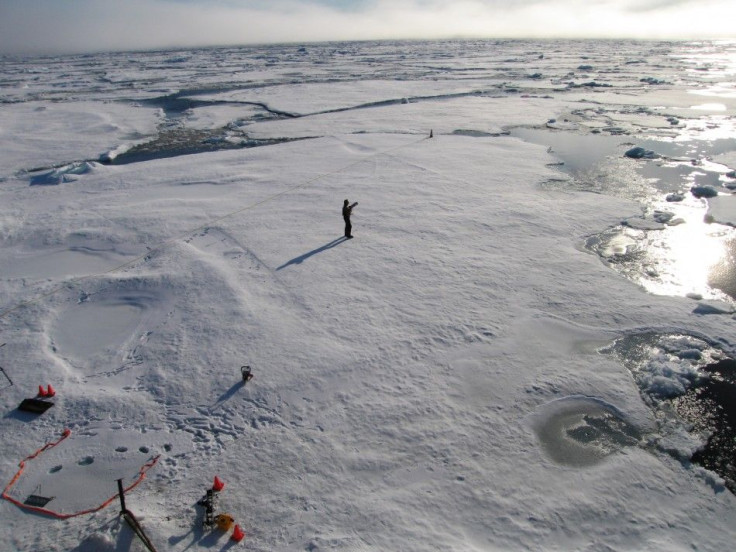End Of Ice Age Caused By Increased Carbon Dioxide Levels

An age-old chicken and the egg debate over what brought the end of the last ice age might finally be solved, according to a new study. Researchers found carbon dioxide levels caused temperatures to rise and brought about the end of the last ice age, not the other way around.
Past studies suggested temperature levels around the time of the ice age, between 10,000 and 20,000 years ago, rose centuries ahead of carbon dioxide levels, meaning CO2 couldn't have driven the increase. Climate change skeptics have long used this as evidence carbon dioxide isn't causing global warming now, but researchers now say they have proof to refute the skeptics.
This is the first effort to get most of the data that's out there together, Jeremy Shakun, study coauthor and palaeoclimatologist at Harvard University, told Nature. It's the first hard empirical proof that CO2 was a big driver of global warming out of the ice age.
Researchers analyzed more than 80 ice samples, ancient pollen and fossilized microscopic life from across the globe. They found carbon dioxide levels increased by 45 percent toward the end of the last ice age -- an increase mirrored during the 20th century. But with no factories or cars pumping out CO2, what caused the rise?
A change in the Earth's orbit, called a Milankovitch wobble, is to blame, according to the study. The wobble caused more sunlight to reach the northern hemisphere and melted some of the ice sheets, triggering a chain reaction that caused CO2 trapped under the ice to be released very rapidly, raising global temperatures over a relatively short time span.
Our study shows that CO2 was a much more important factor and was really driving worldwide warming during the last deglaciation, Shakun told the Australian Broadcasting Corp. Orbital changes are the pacemaker. They're the trigger, but they don't get you too far.
Eric Wolff, chief scientist with the British Antarctic Survey, told BBC News this study shows a minor change can lead to a sequence of events that reshapes the Earth in a radical way.
So, that just reminds us that although climate might seem quite steady to us because it's been relatively steady for the last few thousand years, it is actually capable of undergoing big changes, he said.
Other scientists remain skeptical.
The paper is based on many assumptions without supporting data, Don Easterbrook, geology professor at Western Washington University, told WattsUpWithThat.com, a blog that questions climate change. They assume that CO2 is capable of causing climate changes, even though 95 percent of the greenhouse gas effect is from water vapor. In order to seriously consider CO2 as a causal mechanism, you first need to prove that very tiny increases in CO2 do indeed increase atmospheric water vapor.
Shakun remains convinced rising CO2 levels will hurt the planet unless something is done.
CO2 was a big part of bringing the world out of the last ice age, and it took about 10,000 years to do it, he said in a statement that accompanied the study. Now CO2 levels are rising again, but this time an equivalent increase in CO2 has occurred in only about 200 years, and there are clear signs that the planet is already beginning to respond.
The journal Nature published the study on Thursday.
© Copyright IBTimes 2024. All rights reserved.











